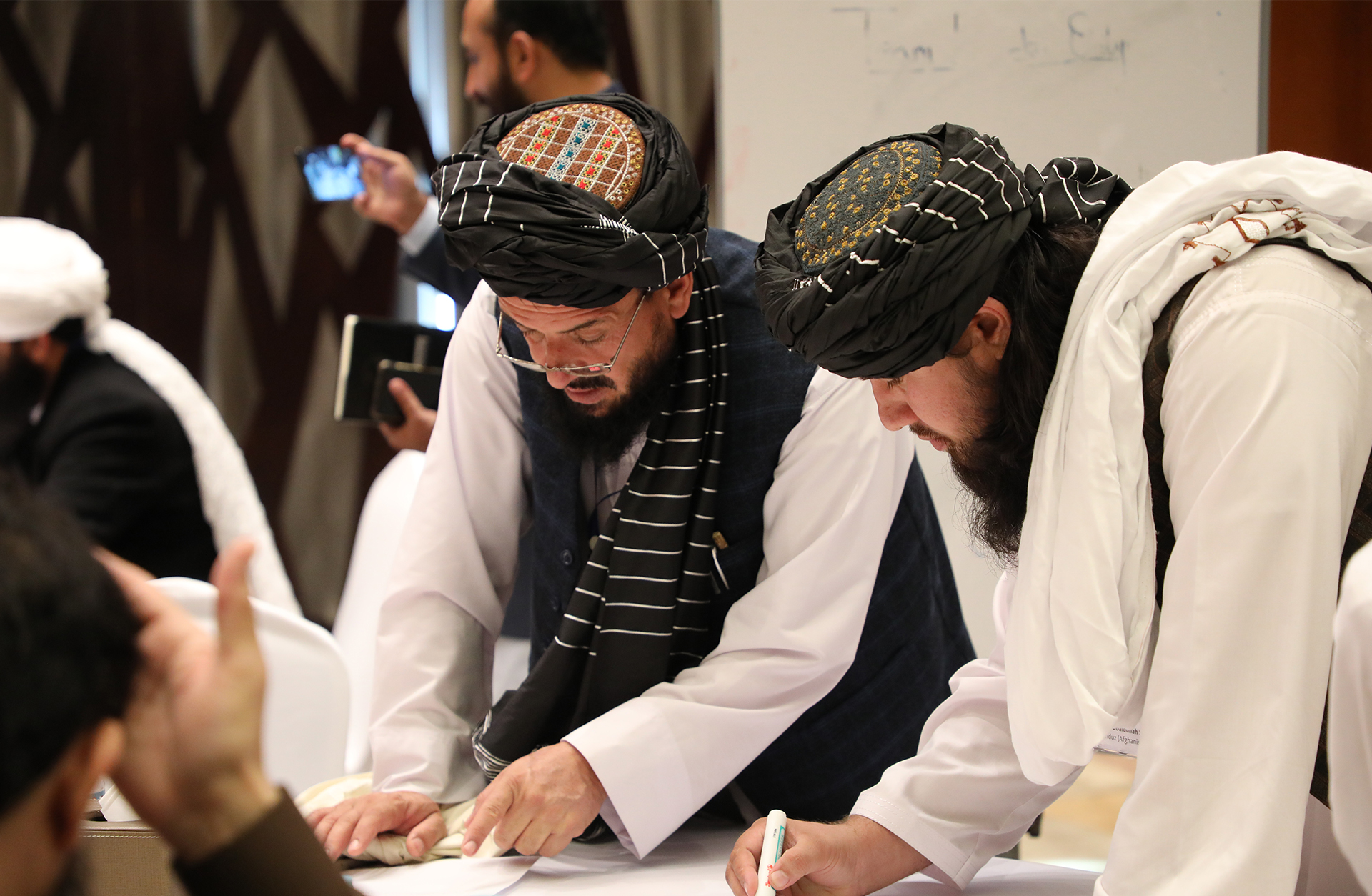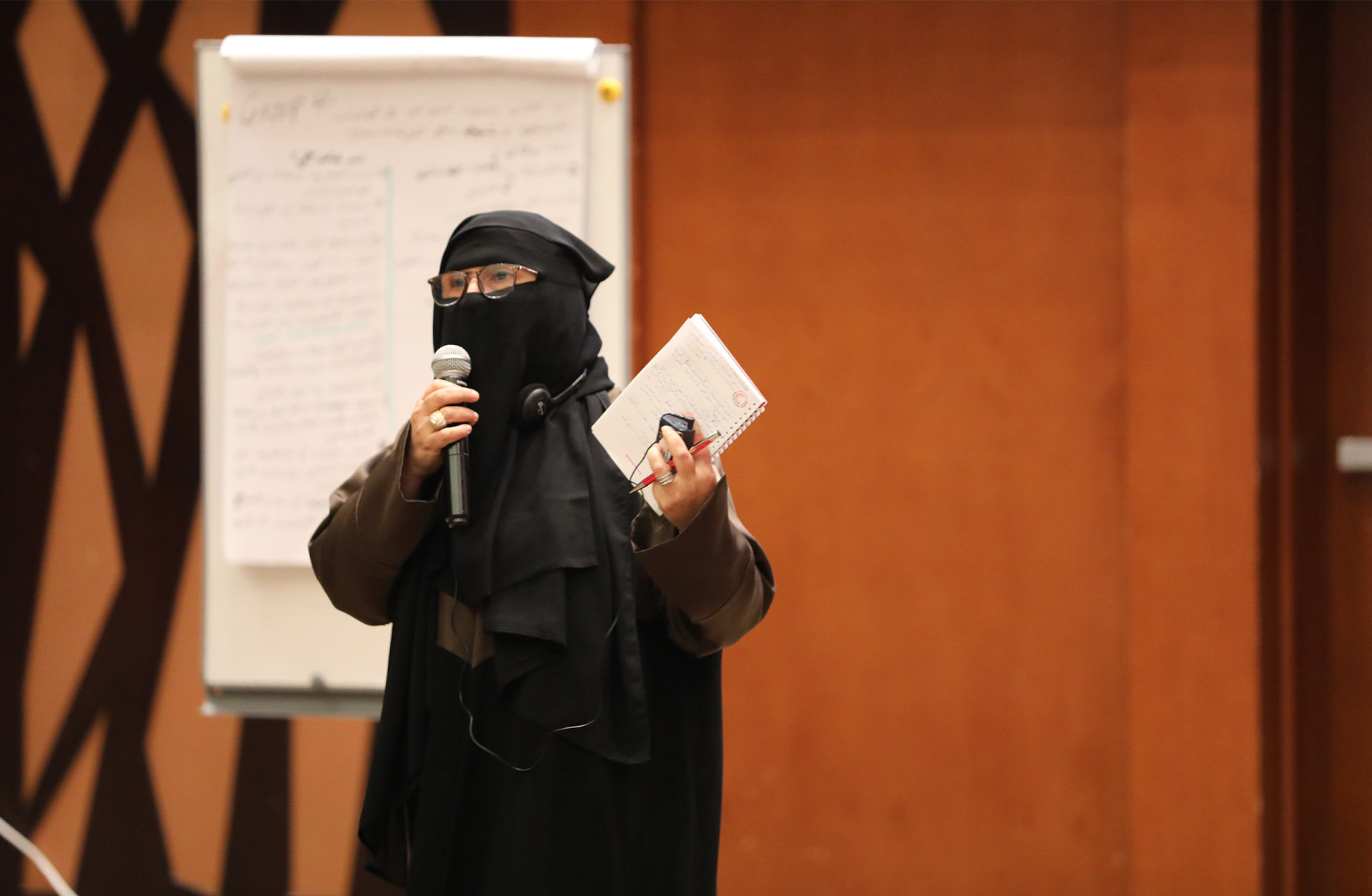The Center of Conflict and Humanitarian Studies (CHS), in collaboration with Geneva Call, successfully organized a three-day international conference with religious scholars in Doha, Qatar. The three-day conference convened Islamic scholars and Ulamas from Afghanistan, Pakistan, Iraq, Turkey Qatar the Occupied Palestinian Territories, and beyond. The Muslim scholars and Ulamas were gathered with humanitarian experts to discuss their vital role in conflict resolution, including engagements with armed groups, de facto governments, the promotion of humanitarian norms, the upholding of peace, and the strengthening of social cohesion.
The conference that brought together this diverse group was held by Geneva Call and the Doha-based Center for Conflict and Humanitarian Studies from December 5th to 7th and took place against the backdrop of the dire humanitarian, human rights, and protection situation in Afghanistan.
Leveraging the positive influence of religious leaders
At the conference, held under the Chatham House Rule, participants engaged on crucial issues such as interfaith dialogue, inclusive access to education, and the protection of minorities. "More events like this should happen. Religious leaders should enhance their knowledge of International Humanitarian Law and International Human Rights Law because they are very influential within their communities; they have students, they go on TV, and they can effectively spread out the messages" stated a religious scholar from Pakistan.

Female religious scholars actively participated in the conference and underlined the vital role that women can play in fostering social cohesion and ensuring that humanitarian norms are respected in their communities. "The importance of Ulamas is not only evident during a crisis but also before, in order to prevent it. They should be a role model in understanding and listening to other people's opinions and leading by example for their communities" said a female religious scholar from Palestine.

According to the United Nations Office for the Coordination of Humanitarian Affairs (UNOCHA), after forty years of conflict, almost 30 million people are in need of humanitarian aid in the country, and the situation is further worsened by recurrent natural disasters, the harsh effects of climate change, and chronic poverty. This precarious situation has a direct impact on social cohesion and increases the likelihood of inter-communal violence.
A longstanding humanitarian engagement
Geneva Call's role in co-hosting the conference was provided as part of its longstanding humanitarian engagement in Afghanistan. There, Geneva Call has been promoting the norms related to the protection of civilians, humanitarian access, principled law enforcement, the protection of health care, and education since 2017. Over the past two years, Geneva Call has strengthened its collaboration and engagement with Muslim religious scholars and madrasas in Afghanistan, recognizing their pivotal role in discussing protection and humanitarian issues. Ulamas who have actively participated in Geneva Call's events and workshops have effectively disseminated crucial humanitarian messages within their respective communities, leading to a notable increase in participants reached during Friday prayers.
The engagement with religious leaders in Afghanistan and the region is strengthened by the partnership with the Center for Conflict and Humanitarian Studies (CHS), with whom Geneva Call signed a Memorandum of Understanding in September 2022. The CHS is an independent center for research and practice based in Doha, which is dedicated to promoting dialogue, understanding, and effective responses to the challenges of conflict and humanitarian crises. The Center recognizes the importance of creating spaces for inclusive dialogue between local communities affected by crises to raise awareness among stakeholders, and it reflects the value of inclusivity in all aspects of its activities, ensuring that a plurality of voices is provided platforms, in particular marginalized and excluded groups.
The success of the conference is expected to have a lasting impact. The participants have agreed to take concrete actions to implement the outcome of the discussions that were held over the 3 days and further share protection messages within their communities. Religious scholars will therefore organize lectures, conferences, and seminars with the final aim of bridging gaps between different ethnic and religious communities to improve social cohesion and will work to include International Humanitarian Law and International Human Rights Law in their work. Moreover, many of them will use their prominent position as influencers on social media and TV channels to share messages to promote social cohesion and non-discrimination and will share the same messages in their Friday sermons. Finally, some of them will also advocate for the importance and respect of humanitarian norms and non-discrimination among armed groups and de facto authorities at both local and national levels.
Achieving Sustainable Peace through Collaboration
This international conference represents a significant step toward achieving sustainable peace in Afghanistan. By engaging religious scholars and Ulamas from diverse backgrounds, the event fostered a deeper understanding of shared values and common goals. The discussions and insights gained during the conference will contribute to the ongoing efforts of CHS and Geneva Call in addressing the multifaceted challenges faced by Afghanistan.
The collaboration between CHS and Geneva Call underscores the importance of a comprehensive approach to conflict resolution, encompassing education, advocacy, and engagement with religious leaders. "This event has been a key milestone in our strategic partnership with Geneva Call and we will continue working together with them to hold similar events that will contribute to bringing a positive change among communities living in crises-affected areas" declared Dr. Aiham Alsukhni, Senior Research Fellow at the Center for Conflict and Humanitarian Studies, at the end of the conference. Geneva Call and the CHS have thus defined follow-up activities to ensure the momentum generated by the conference effectively leads to sustained positive change in Afghanistan and the region.